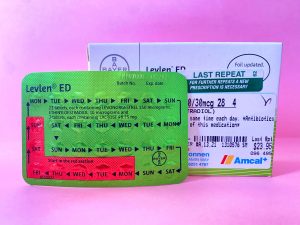Pill Testing: The Lowdown

Calls for pill testing are on the rise as drug overdoses at festivals and raves have become all too common.
Australia has the highest proportion of recreational drug users in the world: first in ecstasy use, third in methamphetamines, and fourth in cocaine. Drug-related deaths at festivals such as Stereosonic, Harbourlife, Defcon, and Dragon Dreaming have prompted crackdowns on drug prevention, as security continues to tighten at music festivals. Hundreds are arrested every year for drug possession.
Pill testing has the potential to prevent lethal overdoses of party drugs, but the beginning of the 2016-2017 festival season saw former NSW Premier Mike Baird threatening to prosecute anyone associated with a pill-testing trial, and NSW Police Minister, Troy Grant, pledging to arrest anyone trying to access the service.
Politicians, law enforcement, and health experts continue to clash over pill testing proposals. Another festival season has come and gone without the implementation of harm minimisation strategies.
Local politicians have also knocked back a proposal that would trial pill testing at Canberra’s sold out Groovin’ the Moo festival on May 7th.

“Pingas”, “pills” and “disco biscuits” all refer to tablets of psychoactive drugs such as MDMA, ecstasy, and methamphetamines.
The ever-evolving chemical composition of drugs complicates the effects they may have, as users are not always sure of what they are taking. Understanding the concentration of ingredients can potentially reduce overdoses and knowledge of cutting agents can reduce the bodily harm that dodgy pills can cause.
Testing kits are legal in Australia but the drugs they are designed to test are illegal. A small sample of a pill is mixed into a clear liquid that changes colour to indicate what active ingredient is present. Although these kits may not identify every substance in a pill, they can provide users more information, facilitating a more informed decision. Pill testing booths at festivals can also test for a much wider range of substances that may be present.
Pill testing schemes have proven to be a success throughout Europe following trials in countries such as Switzerland, Austria, Belgium, Germany, Spain, and France.
Austrian research found that two-thirds of users said they wouldn’t consume the drug and would warn friends in cases of negative results.
Research conducted across these countries found that pill testing sharply reduced risk, changed negative behaviours, and has seen an evolution from within the illicit drug market. As users became more aware of pill contents, the production of purer and safer drugs increased. Testing also provided the opportunity for alerts about harmful drugs to be sent out to festival-goers by SMS and posted on big screens around the venue.

The process for testing at a festival is quite easy too.
A booth is usually set up outside festival gates, where partygoers can go and get their drugs tested. Experts run the tests that can provide more comprehensive and accurate results than simple kits. These results can help users to make informed decisions and safely dispose of the drugs if they’re not deemed safe. Festivalgoers can also discuss drug use with doctors who can ensure they aren’t taking other medications that could cause an adverse reaction as well as advise safe consumption levels.
Research conducted by the Australian National Council on Drugs found that 82% of young Australians are highly supportive of the introduction of pill testing, consistent with young people’s overall views about drugs.
The government’s main concerns are that pill testing may condone drug use and complicate police enforcement of illicit drug possession. Providing safe means for partygoers to test and consume their drugs contradicts the government’s no-tolerance policy. This stance has been compared to telling young Aussies to abstain from sex rather than engaging in safe sex.
Similar programs that promote safe drug use have been rolled out and do provide some precedent for the introduction of pill testing. The Medically Supervised Injecting Centre in King’s Cross is one example of police allowing drug users to inject safely.
An update of laws to establish pill testing booths is essential, because at the moment there is nothing stopping police from surrounding these testing booths and arresting anyone who approaches.
Government-funded educational programs and advertising campaigns advising young Aussies about the associated risks of ecstasy and other party drugs have not changed the prevalence of drug use among young people.
Pill testing is relatively cheap and has repeatedly proven to be more effective than preventative measures and will save lives.



Be the first to comment!